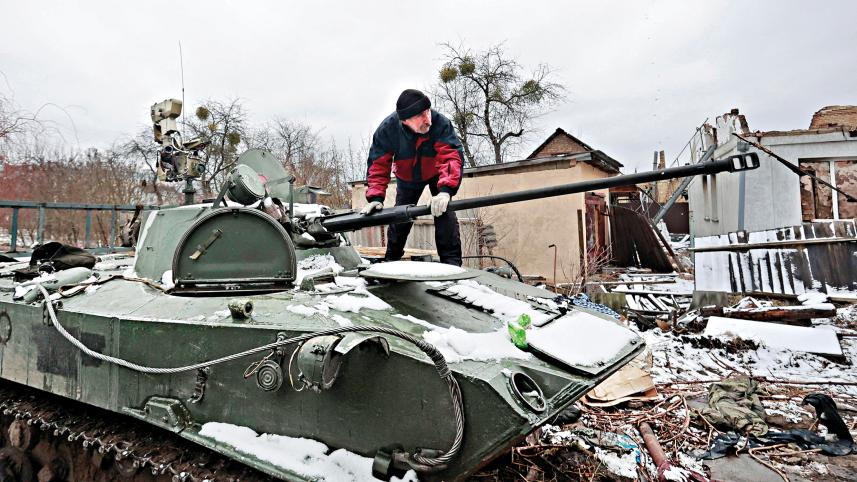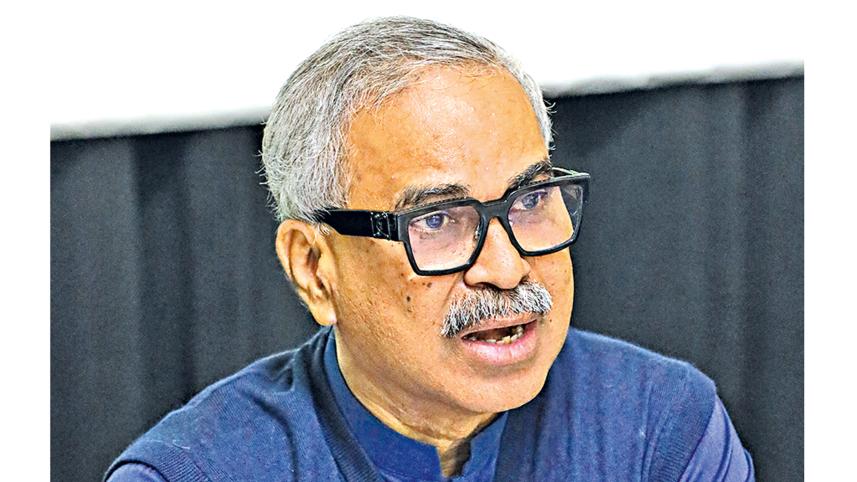Both could’ve done better

Kyivan Rus, the first Slavic state, is considered the birthplace of Belarus, Ukraine and Russia. In the 11th century, the vast territory of Kyivan Rus stretched from White Sea in the north to the Black Sea in the south, and nurtured people of various ethnicities and cultures. Russia, Belarus, Ukraine all claim shared cultural heritage to the Kyivan Rus. The names of Belarus and Russia are also derived from the Slavic state.
Over the centuries, Kyivan Rus has been at the receiving end of invasions, by the Mongols and by the western forces, including the Polish forces, with the lines of its fate being drawn and redrawn again by the invaders.
In 1991, with the break up of the Soviet Union, the fates of Belarus, Ukraine and Russia had finally been sealed. Or so it seemed at that time. But then 2014 happened, when Crimea had been annexed by Russia and Dontesk separatists had declared independence from Ukraine, leading to a prolonged conflict that has claimed the lives of more than 14,000 people so far. And now the Russian invasion of Ukraine.

Eastern Ukraine was populated with people from Russia after the death of millions of Ukrainians during the 1930s famine. The Russians there have a strong affinity with Russia. They are pro-Russian and often do not appreciate the pro-West sentiments of the western Ukrainians.
While Belarus—with its pro-Russian government in power, albeit unpopular—is secure in the knowledge that it has Russia's security support, Ukraine, with public opinions divided over their approach towards Russia, and only "assured" by the West of its admission to Nato or the EU, has remained vulnerable on every front.
After the Cold War, Russia, feeling threatened by the growing influence of the West on the former Soviet Union states, has tried to put up a strong front as a major world power. This is why when Ukraine expressed its Nato and EU admission ambitions, Russia did not sit quietly.
This invasion is as much about the existential threat of Russia as it is about Ukraine's. If Ukraine formally joins the Nato, then the Western security alliance—with its military might—will reach Russia's borders, a highly undesirable outcome for the country.
Pro-Russian Belarus President Alexander Lukashenko is unpopular and in 2020 in the face of mass public protests had come under significant pressure to step down. It was only with Russia's proactive support that he could hold on to power.
Belarus is not a very strong ally. This is why Russia needs Ukraine as a neutral zone.
And Russia's main aim—it seems from this invasion— is a changeover of government in Ukraine to a regime that is more sympathetic to the country and more resilient to the lures of the West—in short replicating the Belarusian arrangement.
But Russia cannot harbour such ambitions about its neighbours.
Ukraine—despite its historical affinities with Russia and the Kyivan Rus, is now a sovereign nation and Russia cannot dictate its policies. If Russia feels threatened then it needs to address its insecurity through other means. Intimidations, manipulations, invasions are not acceptable actions or reactions and must be dealt with the strongest possible measures.
Ukraine's integrity must be acknowledged and respected by Russia.
The West while supporting Ukraine in these trying times, should also work towards building a relationship of trust with Russia, where the country would not need "neutral", "buffer" states between itself and the West.
This madness must end, and all parties must work towards peace. The historic ties between Ukraine and Russia should be celebrated, rather than misused to create a rift and divide.
Tasneem Tayeb is a columnist for The Daily Star. Her Twitter handle is
@tasneem_tayeb




 For all latest news, follow The Daily Star's Google News channel.
For all latest news, follow The Daily Star's Google News channel.
Comments